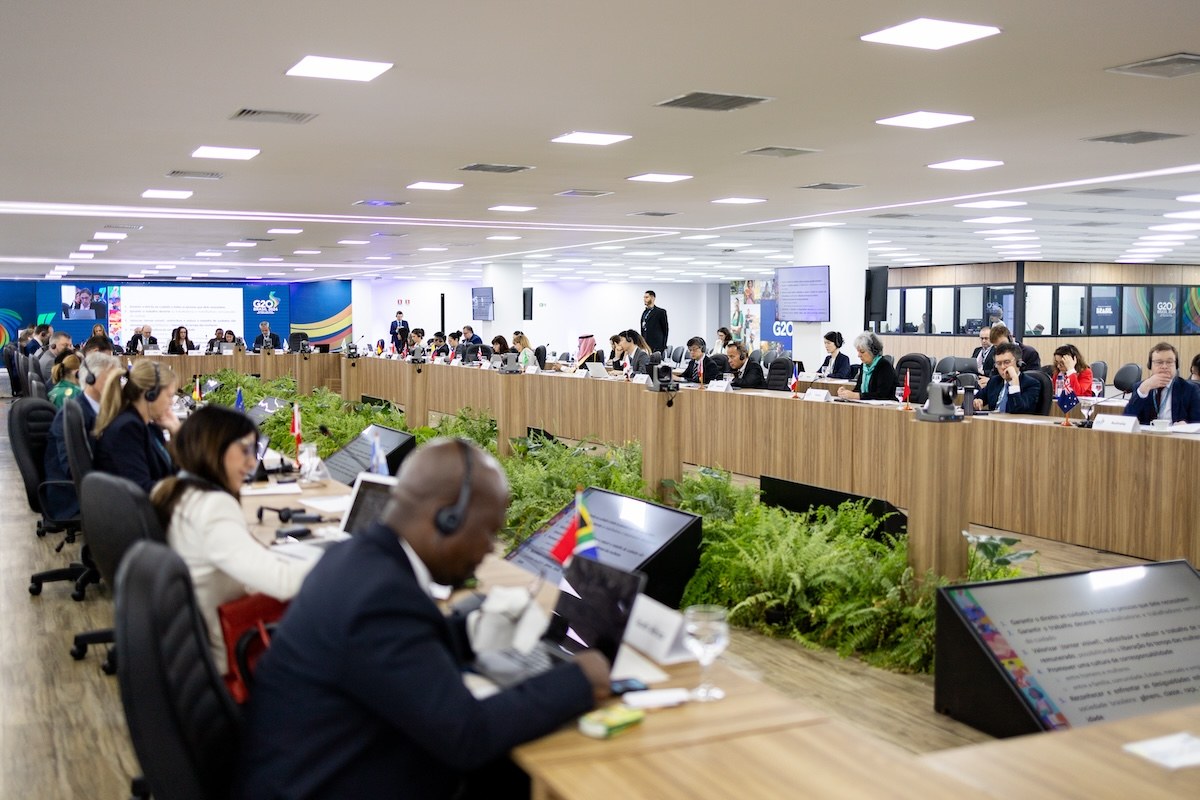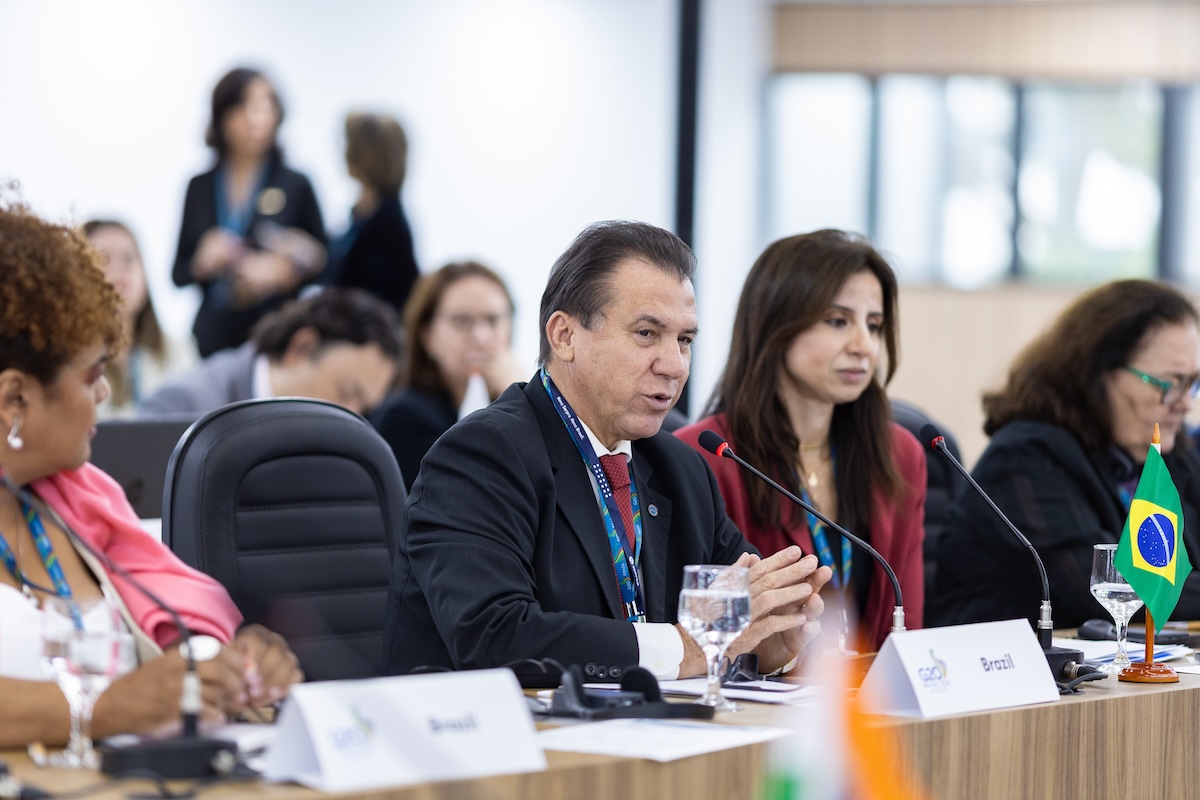G20 group discusses creating value around the mostly women-led care economy
Public policies against discrimination at work and towards valuing the economy of care— recognizing how important the time and energy spent taking care of others is to individual and collective well-being by offering emotional, physical, and social support, for example—are strategic to eliminating salary discrepancies on the global stage.

Two issues emerged as central during the meetings of the G20 Employment Working Group attended by member countries’ representatives and guests: equal pay for men and women, and the culture of care—the latter encompassing values and practices that recognize the importance of care to individual and collective well-being through emotional, physical, and social support, for example.
As reported by the head of the international advisory at Brasil’s Ministry of Labor and Employment (Ministério do Trabalho e Emprego/MTE), Maíra Lacerda, participants were optimistic about the results of the meeting. Lacerda highlighted the positive reception of Brasil's proposals, and the international support given to the priorities that were presented. She also highlighted the continued importance of discussing gender and the effective implementation of policies to ensure equality in labor and in society as a whole.
“We are asking for equal salaries for equal work. The numbers don't lie. Reports from impartial international organizations such as OECD and ILO reveal that there is a very large gap between payments and participation in the labor market. Yes, there is what we call the sexual division of labor. The care policy could resolve issues such as employment, movement of the economy, because, at the end of the day, we will protect people, workers,” she said.
Maíra Lacerda reported that the debate was enriched by presentations by the United Nations Educational, Scientific and Cultural Organization (UNESCO); by the Organization for Economic Cooperation and Development (OECD); and by ministerial representatives. According to Lacerda, the relevance of planning occupational structures and addressing gender issues within the labor market was a point of convergence among nations.
Just as the right to vote, maternity leave and decent working conditions, equal pay has always been a central demand by women in Brazilian politics. In this sense, the head of the advisory highlighted the Equal Pay Law, sanctioned in July 2023 by the current Brazilian government, to ensure equal salaries for men and women carrying out the same work. This legislation seeks to combat gender disparity in the labor market, promoting pay equity and strengthening labor rights.

Wage inequality around the world
Australian government representative Heike Phillips stated that wage inequality in her country is 12%. Canada's delegate said her country is committed to the goal of pay equity for workers. In Brasil, women earn an average 19.4% less than men. In directors’ and managers’, data reveals a salary difference of 25.2%, according to data from the 1st Salary Transparency and Remuneration Criteria Report, jointly released by Brasil’s ministries of Labor and Employment and Women.
The Employment Working Group debate also revealed a number of challenges. The lack of effective communication about legislation and policies, as well as the persistence of gender stigma, were identified as obstacles to be overcome. The need to formalize and value care—work that is often carried out by young black women—was highlighted as crucial to promoting gender equality and boosting countries' economies.
Income distribution: Brasil presents good practices
Brasil’s Minister of Labor and Employment, Luiz Marinho, stressed the lack of good practices in the labor market on the part of companies and government officials. He argued that Brasil has positive experiences to offer, especially with regard to economic growth and income distribution. He mentioned the creation of formal jobs and increasing wages as essential drivers to boosting the economy and ensuring sustainable growth
“The world is lacking good practices in the labor market. This is Brasil's message—salary growth, the fight against discrimination, the entire process of discrimination, particularly against women. Last year we generated almost 1.5 million formal jobs. In the first two months of this year, we reached almost half a million, to give sustainability to the growth of the economy. I think it’s a good experience to suggest to the world,” he pointed out.